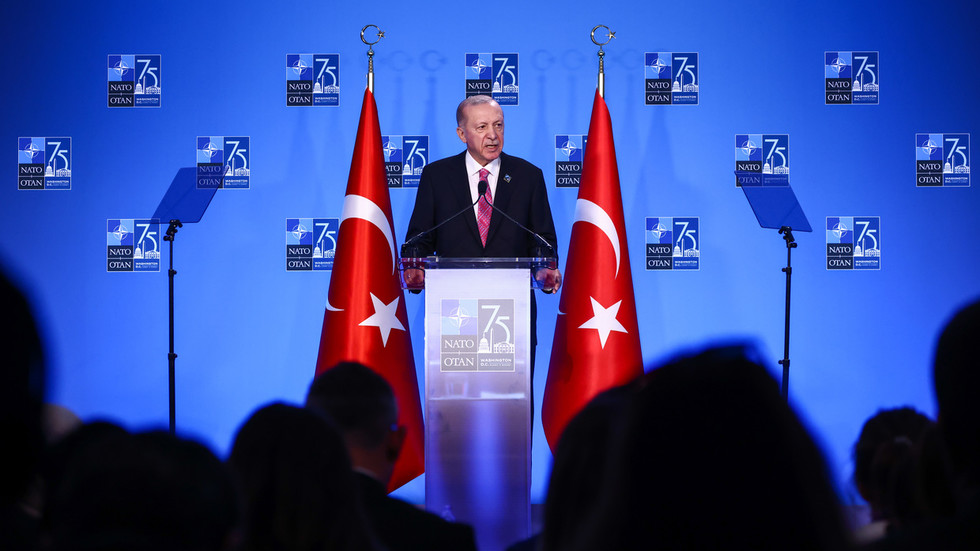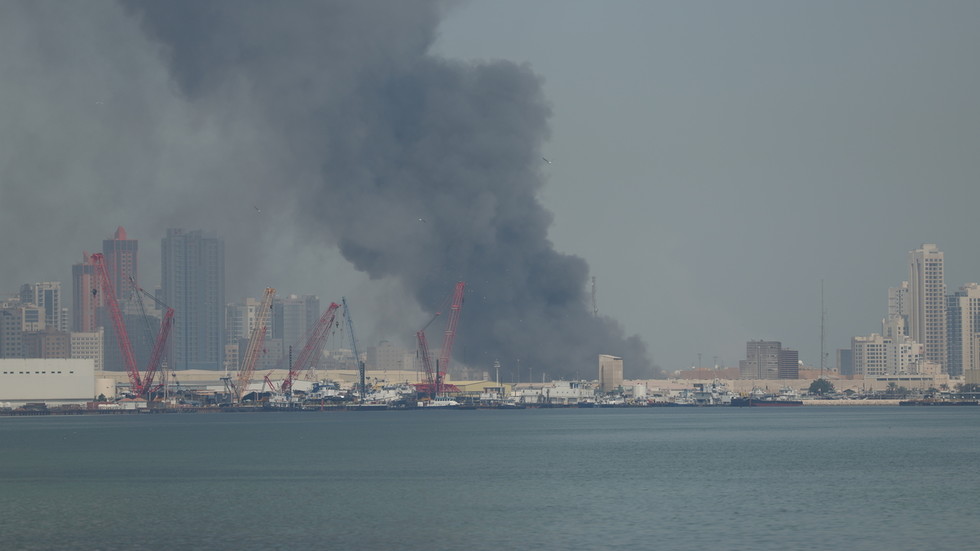The Turkish president understands that the West will have to learn to live as just one of several centers of world power
On the occasion of NATO’s 75th anniversary meeting, only two leaders of NATO member states dared openly speak about issues that in a reasonable organization shaped by mutual respect that seeks the most effective and responsible policies would be the subject of intense debate among all members. The president of Türkiye, Recep Tayyip Erdogan, and the prime minister of Hungary, Viktor Orban, made their dissent clear on the eve of the meeting. A third leader, Robert Fico, the prime minister of Slovakia, issued an urgent warning afterwards, arguing that making Ukraine a NATO member – not the same as the misguided but fortunately non-binding talk about ‘irreversibility’ that the meeting proudly produced – would be a “guarantee of World War III.”
Both Erdogan and Orban broke with the conformism that is the unwritten law of NATO now more than ever. Instead of simply following the often misguided and selfish lead of the US, they signaled three things: Rational dissent on policy reflecting both reason and national interests; that such dissent is normal, useful, and should be welcome; and that they won’t join in the ideological and detrimental groupthink that suppresses dissent inside NATO, and more broadly, the Collective West.
Orban delivered his dose of healthy independence through diplomacy, traveling to Kiev, Moscow, and Beijing on the eve of the summit (meeting with former and likely future US President Donald Trump was just a final touch). Erdogan made his views explicit most of all in an important set of statements in the American magazine Newsweek.
Türkiye, it is worth recalling in this context, has the second-largest military in NATO. Its officers and troops have extensive experience in actual military operations, its arms industry is both growing and constantly modernizing, and last but not least, its location, spanning Europe and Western Asia and controlling access to the Black Sea, is as strategically significant as can be. For all these reasons, it is fair to say that Erdogan’s intervention was especially important. ....more below
Tehran has vowed retaliation for the “savage” attack by Israeli and US “aggressors”
Over 100 students have been killed and dozens injured in an Israeli airstrike on a girls’ primary school in the city of Minab, in southern Iran, according to the country’s news agency Tasnim. The attack comes amid ongoing airstrikes on the Islamic Republic by Israel and the US.
Israel launched what it described as a pre-emptive operation against Iranian military and nuclear-related targets on Saturday, saying the strikes were aimed at neutralizing threats posed by Iran. US President Donald Trump later said Washington was joining the operation, citing the failure of nuclear diplomacy as a direct trigger for the renewed bombing.
One of the strikes reportedly targeted an elementary school in the city of Minab, killing at least 108 students and leaving 92 others injured, according to local officials.
READ MORE: US-Israeli attack on Iran plunges Middle East into chaos: LIVE UPDATES, VIDEOS, PHOTOS...
Iranian forces have retaliated against American-Israeli attacks by targeting Washington’s military bases across the region
The US has suffered 200 casualties in Iranian retaliatory strikes on bases across the Middle East, the Islamic Revolutionary Guard Corps (IRGC) has claimed.
Backed by the US, Israel launched what was described as a preemptive operation against Iranian military and nuclear-related targets in the early hours of Saturday, claiming the strikes were aimed at neutralizing threats posed by the Islamic Republic in the region.
US President Donald Trump later confirmed that the White House had supported West Jerusalem in conducting the strikes, citing the failure of nuclear diplomacy as a direct trigger for the move.
“As a result of missile strikes on American bases, at least 200 US military personnel were killed and injured,” the Tasnim news agency reported Saturday, citing a statement by the IRGC.
Commenting on the retaliation, IRGC General Ebrahim Jabbari warned ...















